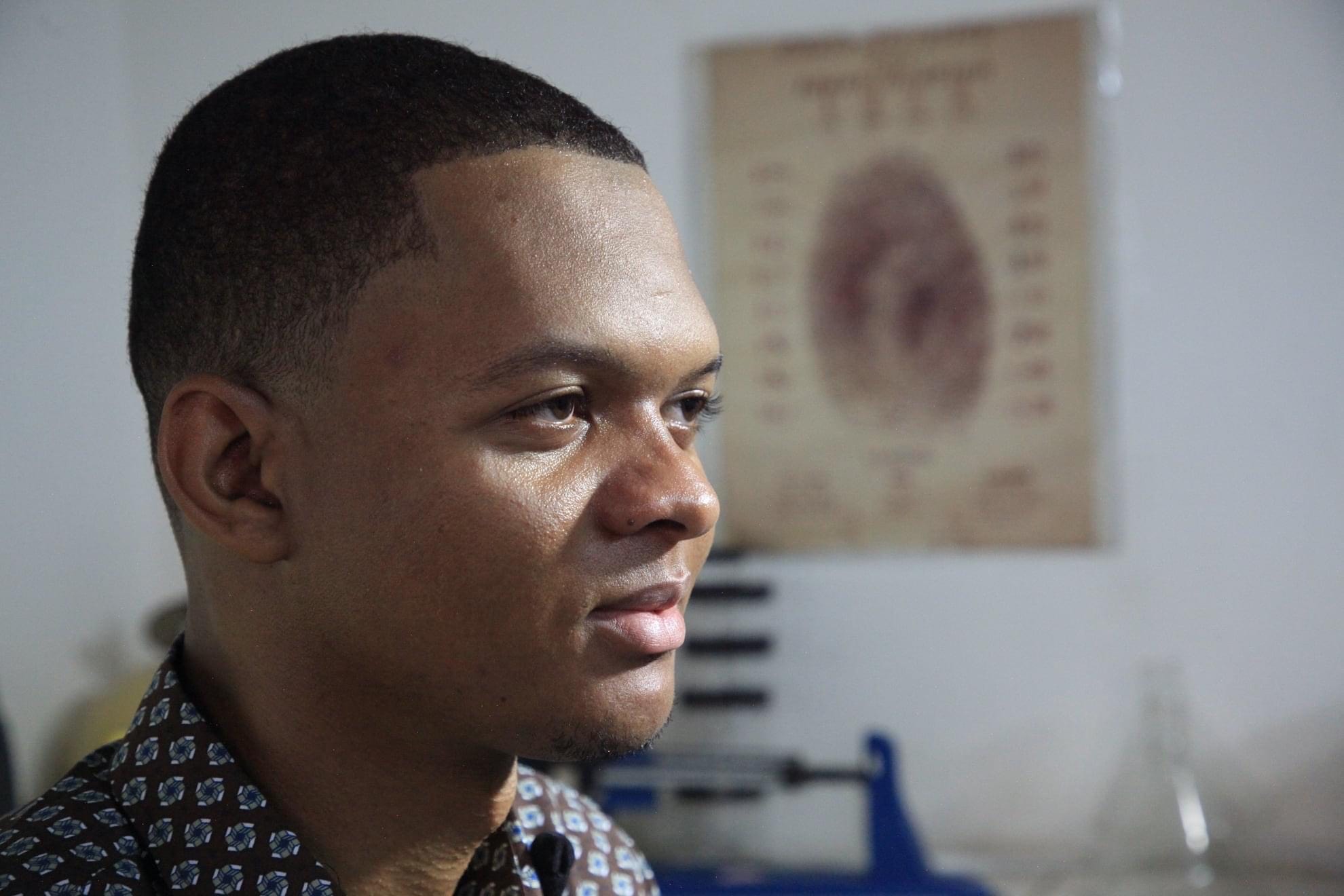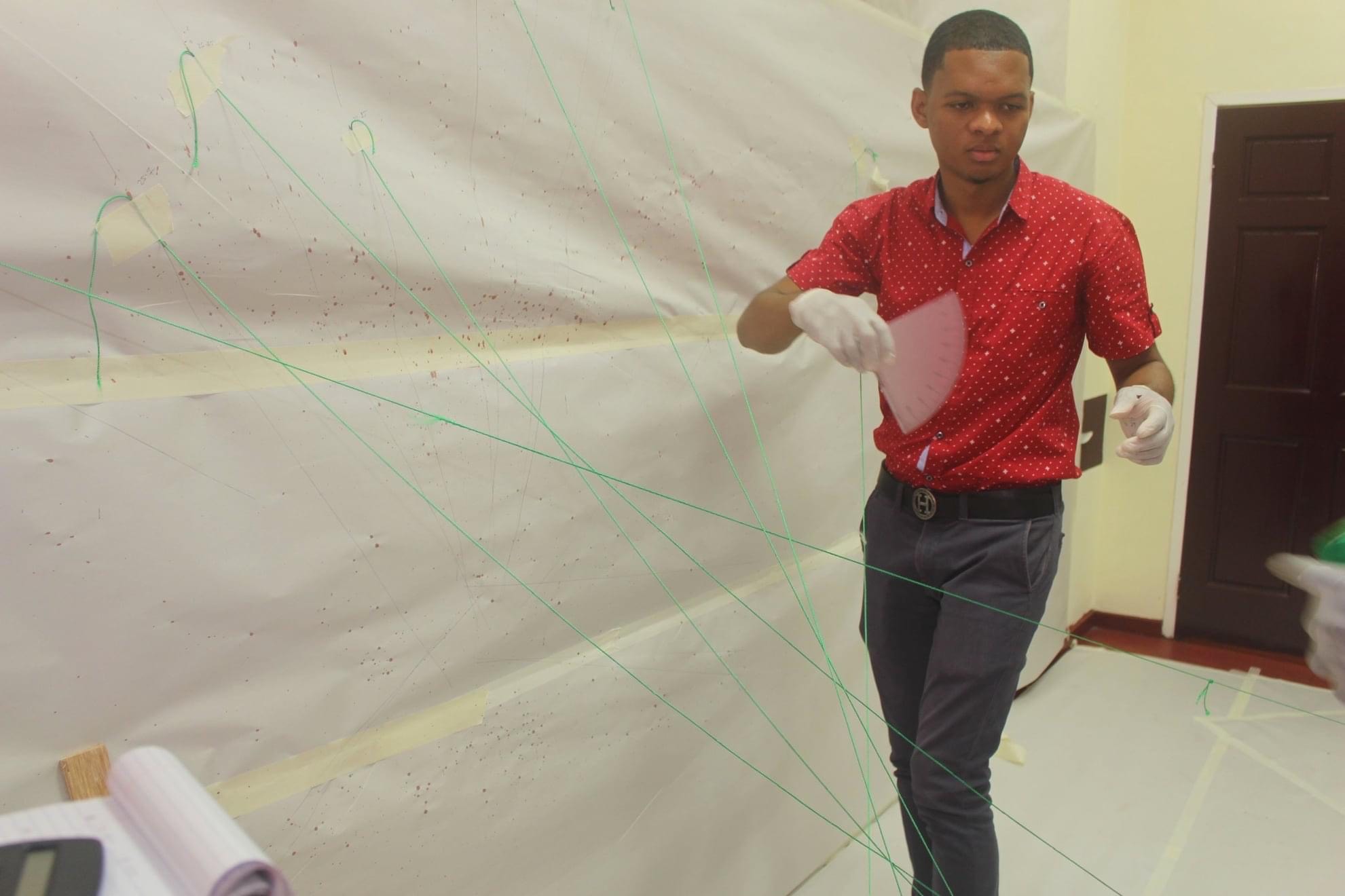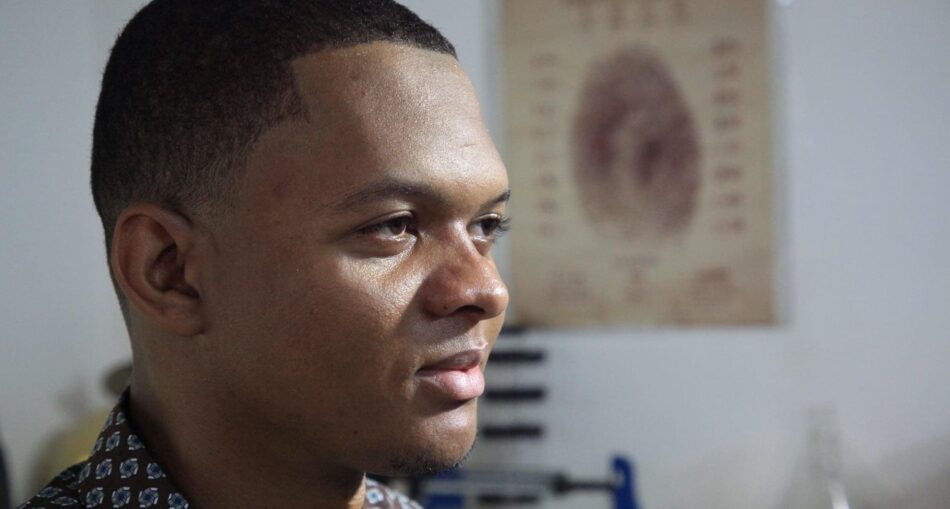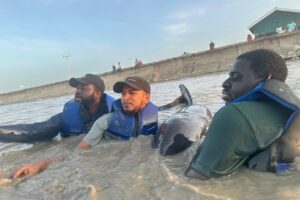It was Hernet Leon MacDonell who said, “Physical evidence can not be intimidated. It does not forget. It sits there and waits to be detected, preserved, evaluated, and explained.” And it has been Assistant Superintendent (ASP) Ray Marcurius of the Guyana Police Force (GPF), who has been detecting, preserving, and evaluating evidence.

Assistant Superintendent (ASP) Ray Marcurius – Photo Credit: Guyana Police Force
Marcurius, an avid lover of Crime Scene Investigations (CSI), said he always wanted to become a crime scene investigator – using evidence to solve crimes.
I have been one of those kids who watched a lot of CSI on television, and I always liked the idea of crime and solving crime and being one of those guys in those shows. So, I always had this passion for forensics.
He added that after seeing the local news filled with crime and prisoners escaping from prison, he wanted to make a difference.
And then I used to watch a lot of news, and I think during that period, we had a lot of murders on tv. It had that period when the prisoners had escaped from prison and with me seeing all these cases, and then you hear when it happened, but it never solved. So, all of that helped to motivate me to actually make a difference.
After completing high school and recognising that there was no program, particularly on forensics at the University of Guyana, Marcurius decided to pursue a Bachelor’s Degree in Medical Technology. This related field would still allow him to achieve his dreams.
After completing his stint at UG in 2015, Marcurius instantly joined the Guyana Police Force and was disheartened when he first set foot into the GPF crime lab. The young ASP said that the crime lab was more unadorned and without the latest forensic equipment and materials.
The first day I walked into the crime lab, I was very, very disappointed. It was nothing that I expected. I had in my mind this modern crime lab that I have seen in other countries and on television. It was basic and simple, and it didn’t have all of that material.
Just two months after he joined the GPF, the Justice Education Society of British Columbia (JES) organized its first training in Guyana on crime scene management, in which ASP Marcurius was invited.
That is where my career started. You see, one of the things that the course taught me is that we are always taught about a crime scene in isolation. But from that course, a Magistrate had a presentation, and she spoke of what she expects from the police, and when you are aware of what you are expecting, it helps you a lot in terms of how to get about meeting those expectations.
Since that first training in 2015, Marcurius has attended numerous other training organized by JES. In 2019, he attended a week-long course on bloodstain pattern analysis. JES organized the course as part of the Strengthening the Criminal Justice System in Guyana project funded by the United States Department of State.
For the first time, the training offered in Guyana gave participants like Marcurius a unique chance to gain exposure to knowledge on bloodstain patterns and their significance in criminal investigations.
Shortly after completing the course, Marcurius was called to a murder crime scene. And investigators did not have much hope to find any evidence there. Yet, they pressed on with the work of processing the room thoroughly and methodically. When examining the wall, ASP Marcurius saw some tiny stains.
Having just learned in the course that blood has a distinct shape, he recognized these stains and collected blood samples. A critical piece of evidence was added to this crime file adding to the possibility that the perpetrator will be brought to justice.
“We were shown a small street behind a gas station, and it had some trees in an area, and it had this body of this female that was wrapped up. That would have been the second murder I would have done of violent cases. But what happened is that the following day, we had to process the home, and I would have found some bloodstain that otherwise we would have missed.
“The victim was taken downstairs and was shot, and the suspect cleaned up the room. He would have cast back the floor, and that was my first observation, and I was examining the walk, and I saw some very small stains.”
Beyond technical skills like the ability to recognize and collect evidence, JES courses spotlighted the overarching values that guide police work: cooperation, integrity, high quality of investigations.
Crime scene technicians are often portrayed as working in isolation. One of the values that the first JES course emphasized is the importance of considering how everyone plays a part in the bigger picture of the criminal justice system.
Being exposed to these principles early in his career made it easier for ASP Marcurius to adopt best practices himself and motivate others to do the same, he said.
He emphasized that he never had the opportunity to “learn the wrong way;” instead, he was exposed to the best international practices from the very beginning. From this solid base of best practices, principles, and technical skills, he works with his colleagues to support their growth.
Ray Marcurius received JES training on adult learning and facilitation and, along with other GPF trainers, uses these skills to conduct training for his colleagues in Guyana and the Caribbean on taking notes, writing statements, and responding to and managing crime scenes.
In 2019, after a JES recommendation to the GPF senior leadership to ensure that training was immersed into the GPF’s culture, the Police Commissioner appointed ASP Marcurius to the Quality Assurance Officer position, where he now oversees initiatives to improve and maintain the quality of crime scene investigations.
His drive and dedication have been recognized within the GPF, and he has been promoted several times, most recently to an Assistant Superintendent. That kind of external recognition is critical, and ASP Marcurius is the first to acknowledge it.

Marcurius trying to solve a crime – Photo Credit: Guyana Police Force
However, his main drive is still the same as when he first started: “I always want to be the best at what I do and to keep improving, and keep getting better.”
Discover more from Things Guyana
Subscribe to get the latest posts sent to your email.







